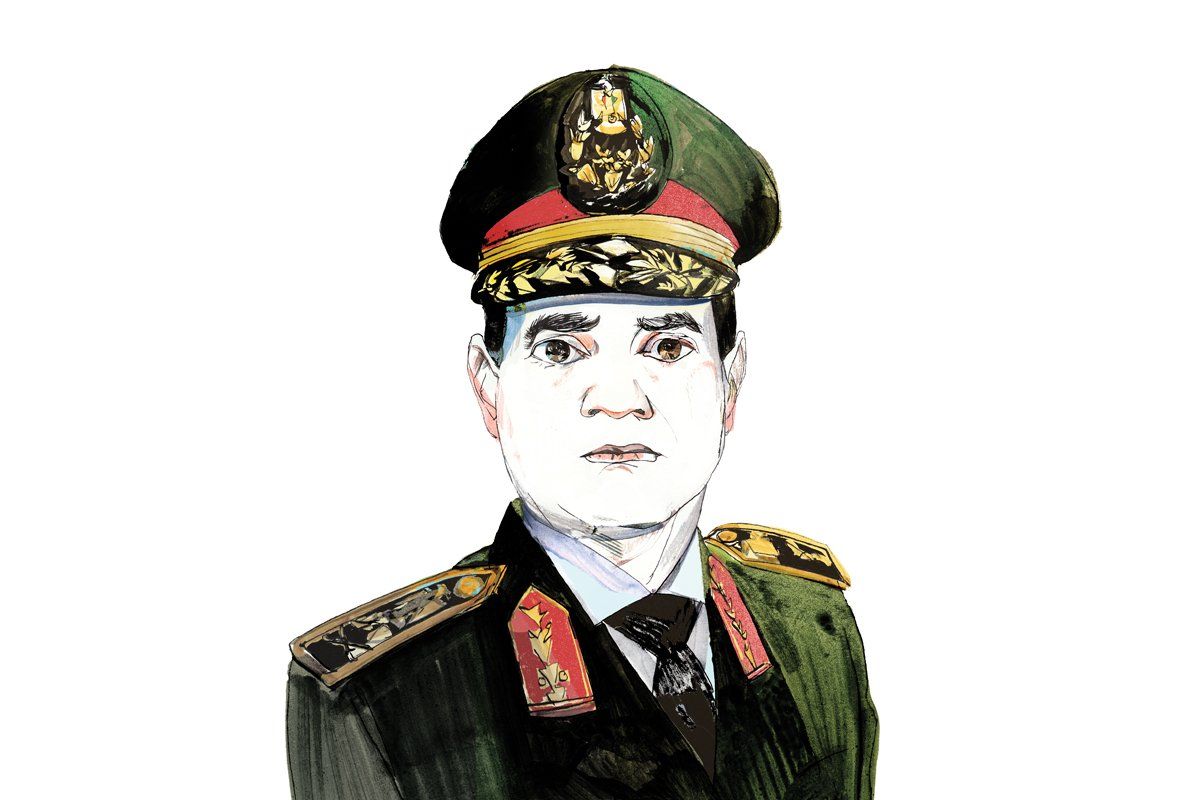
A remarkably quiet revolution recently took place with the naming of Gen. Abdel Fatah Al-Sisi, 57, as Egyptian defense minister and commander-in-chief of the armed forces. The man he replaced, 76-year-old Field Marshall Mohamed Hussein Tantawi, had held the post for more than two decades. Indeed, since the fall of President Hosni Mubarak early last year, Tantawi had seemed to be the ultimate maker and breaker of governments. But now Tantawi, too, is gone.
The sudden ascent of Al-Sisi from the shadows of military intelligence is part of a calculated power play by newly elected President Mohamed Morsi. And given the conspiratorial history of Morsi's organization, the Muslim Brotherhood, some Egyptian commentators speculated that the new defense chief was an Islamist mole in the officer corps all along. But there's no proof of that, and some of his most revolutionary notions, in army terms, may have come from the United States.
As head of military intelligence, Al-Sisi was high command's "key guy for maintaining the loyalty of the military," says Robert Springborg of the U.S. Naval Postgraduate School. And Al-Sisi clearly knew he was able to count on broad support from career soldiers who had been nursing deep professional frustrations for years.
Tantawi was trained by the Soviets, when Cairo was aligned with Moscow in the 1960s and at war with Israel, and although he was willing to take tens of billions of dollars in U.S. military assistance over the years, he and his cronies remained deeply suspicious of underlings who got too close to the Americans. Many of the younger officers "had a lot of exposure" to the American army's ideas of professionalism, says Springborg. But "Egyptian officers who were really dedicated and committed were just being passed over, especially those who had done well in the United States." Al-Sisi himself worked on his master's degree at the U.S. Army War College in Pennsylvania in 2005 and 2006. He also held several infantry commands, giving him credibility among the guys who carry guns. And, importantly, he experienced firsthand the aggravation of officers who watched huge amounts of money squandered on projects that lined the pockets of the high command but left the soldiers unable to fight effectively.
When jihadists in the Sinai attacked Egyptian border guards on Aug. 5, killing 16 and humiliating the armed forces, Morsi and Al-Sisi seized the moment. Within three days, the president had replaced the commander of the presidential guard as well as the head of the general intelligence organization. Four days after that, he announced Tantawi was out and Al-Sisi was in. In Washington, the sense of relief was evident in remarks by Defense Secretary Leon Panetta. Al-Sisi, he noted, had "trained and spent a lot of time in the United States." And has an "unwavering commitment to the U.S.-Egypt mil-to-mil relationship." Or as Springborg summed up the changing of the guard: "It's not just an age difference; it's an outlook."
Uncommon Knowledge
Newsweek is committed to challenging conventional wisdom and finding connections in the search for common ground.
Newsweek is committed to challenging conventional wisdom and finding connections in the search for common ground.





